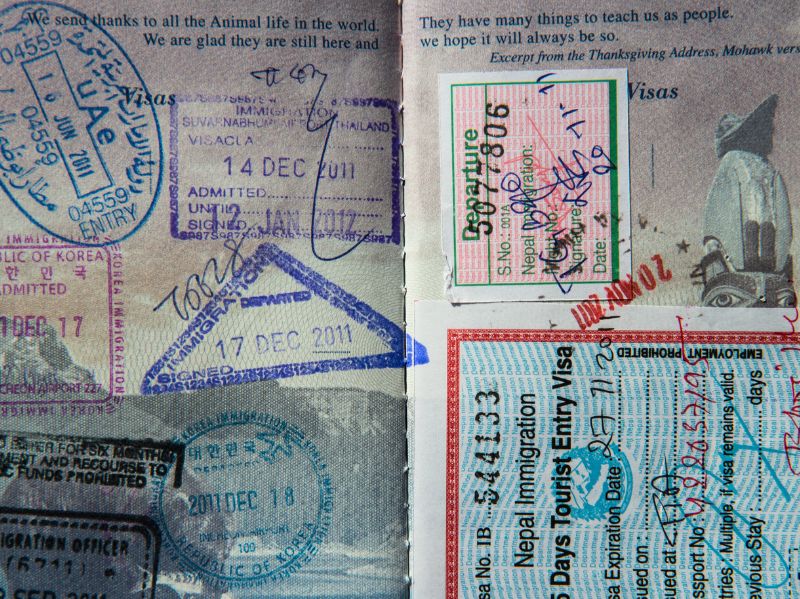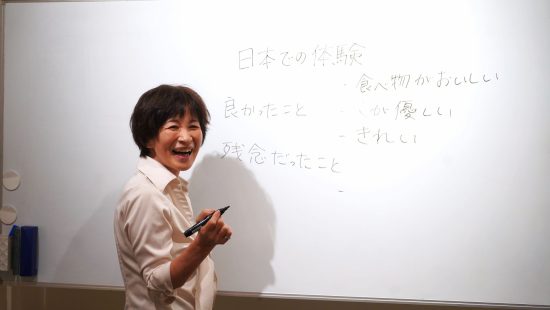|
How to Keep Your Japanese Student Visa from Being Rejected

Finally made up your mind to apply to a Japanese university? Before doing anything else, make sure everything is in order! Many students often worry that their visa application will be rejected. It would be unfortunate to have to alter your plans simply because you failed to meet one condition! All you could truly do after submitting everything was wait. We’ve thus put together 3 suggestions to ensure your student visa clearance in order to save you the anxiety!
How to Get Your Student Visa Approved for Japan Study
It’s common to have worry while awaiting the outcome of your visa application. Many candidates have experienced the same emotions as you but have exhaled with relief after their visa application was accepted. You can trust that your application procedure will go well if you carefully prepare all the required paperwork!
But keep in mind that the following details are based on the broad specifications that hold true for the majority of successful candidates. Since approval is largely dependent on individual circumstances, it is impossible to say with certainty how the visa application procedure in Japan works. The method may possibly undergo unforeseen adjustments by Japanese officials.
Maintain readiness with the basic necessities! The best course of action to follow is to seek information from authoritative sources if you are unsure. To ensure that your Japanese student visa is accepted, follow these 3 tips:
Ensure the accuracy of your documents
Make sure all of the information you supply is correct when you apply for your student visa via the Japanese institution of your choosing. Typos and other little mistakes might hurt your prospects and result in your application being rejected. Let’s prevent it by making sure that all of your entered personal information corresponds to the submitted official papers.
Usually, a school will need additional paperwork in addition to the visa application form. One of them is a personal history form that you must complete with information about your academic and professional background. Some schools could also ask for information about your family. You must be exact with the dates including your prior schooling, former employers’ addresses and phone numbers, and family members’ names.
The application essay, which functions as a kind of cover letter to persuade a school as to why you wish to study in Japan, is another requirement. Write a paper that shows your enthusiasm if you’ve always wanted to study abroad! If you’re older than the typical college student, you might also discuss how obtaining a Japanese education will advance your job.
Your medical history, transcripts of records, your alma mater’s diploma, and a copy of the ID page of your passport may also be required by your institution. Even while some colleges only take digital images, you should also have 8 passport-sized photographs ready. Keep in mind that consistency and precision are the keys to approval!
One school at a time while applying
You can experience a different application procedure in Japan than you would in your place of origin. They should all be aware of your intentions if you’re applying to various institutions that will handle the visa portion of your application. Stick to one unless you don’t mind making the additional effort to inform each school you’re applying to that you have other options. Even while you may believe that applying to numerous institutions would boost your chances of being admitted, doing so will just make your application seem shady unless you explicitly state as much in the beginning.
It’s also a good idea to let your preferred school know about your application history. Because candidates had previously applied to the same institution, there have been instances when visa requests almost were rejected. Although you would assume that students who have previously attended Japanese institutions would automatically be granted visas, the Japanese visa process is quite precise. There are temporal restrictions on studying abroad in Japan. Students must provide the appropriate documentation demonstrating that they still have a few months left before their allotted time as students expires. Otherwise, it would seem as if they were trying to trick the system in some way to enter Japan. You only need evidence to disprove that possibility!
You must include your plans to work while studying in Japan right at the start of the application process. As long as you have a student visa, your responsibility is to pursue your education. Other activities, such as part-time employment, are prohibited. The Japanese Ministry of Foreign Affairs has very strong policies in place to deter potential offenders. You will certainly pass any screening if you are open and sincere about your desire to pursue an education in this nation.
Secure Enough Money
You must provide evidence of your capacity to support yourself financially while you reside in Japan when you apply for a visa to enter the country. How long you plan to study will determine how much money you need to present. Whether your course lasts a month or 90 days, your income or savings should be corresponding to the length of your stay. Attempt to multiply 21,500 JPY by the number of days you will be in Japan. You should ideally have 3,000,000 JPY in your bank account in addition to a reliable annual paycheck.
If you have a sponsor or guarantor, they must also be able to demonstrate that they can support you financially. To reduce problems, we advise using a member of your close family as your guarantor. Even better would be for them to reside outside of Japan, since sponsors who do so must meet stricter wage criteria. Your guarantor should ideally be able to provide proof of a bank balance of 2,000,000 JPY and a comparable annual earnings.
Create a letter of remittance outlining your financial situation while studying in Japan. Make careful to state the source of your schooling funding. Also, prepare all of your bank account balance certifications. You must also provide evidence of your or your sponsor’s job. Finally, a formal promise stating that you will pay all costs due is necessary. Prepare these formal papers as soon as possible to demonstrate your ability to fund your studies in Japan.
Conclusion
The ideal method to approach your visa application is undoubtedly to have all the criteria ready in advance. It can take you at least six months to do this before you can enroll in the Japanese school of your choice. If the process appears prolonged, keep in mind that you may rest easy knowing that you have perfect documents and the means to pay for it. By organizing all of your paperwork before applying for your visa, you may avoid the worry that comes with it. When you get that nod of approval, you’ll be grateful to yourself.






